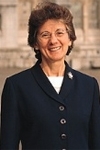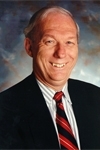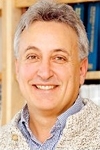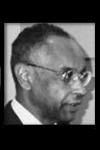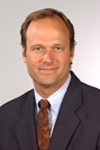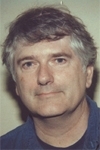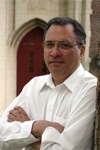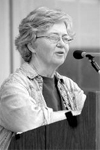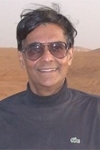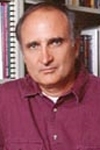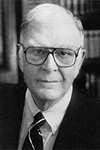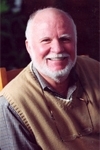International Advisory Board (Browse the EoE)
International Advisory Board
| Topics: |
This content is not assigned to a topic
|
International Advisory Board | |
|
Rita Colwell, Ph.D. From 1998 to 2004 Dr. Rita Colwell served as the 11th Director of the National Science Foundation (NSF). Under Dr. Colwell's leadership, the National Science Foundation budget grew by over 68 percent, surpassing US$5 billion for the first time in 2003, and the agency was recognized for excellence in both science and management. During her tenure, she oversaw a major increase in the Foundation's support for environmental research and education through such initiatives as the interdisciplinary priority area on Biocomplexity in the Environment. | |
|
Robert W. Corell, Ph.D. Robert Corell is Director of the Global Change Program at the H. John Heinz III Center for Science, Economics and the Environment, and a Senior Policy Fellow at the Policy Program of the American Meteorological Society. He is currently actively engaged in research concerned with both the science of global change and the interface between science and public policy. He is particularly interested in global and regional climate change and related environmental issues, and in the science to facilitate understanding of vulnerability and sustainable development. | |
|
Robert Costanza, Ph.D. Dr. Robert Costanza is the Gund Professor of Ecological Economics and Director of the Gund Institute for Ecological Economics at the University of Vermont. Costanza is co-founder and former-president of the International Society for Ecological Economics, and was the founding editor of the society’s journal, Ecological Economics. He is past President of the International Society for Ecosystem Health. | |
|
Francisco Dallmeier, Ph.D. Francisco Dallmeier heads the Center for Conservation Education and Sustainability (CCES) of the Smithsonian’s National Zoological Park, where since 2006 he has focused on identifying, recruiting and educating the next generation of conservation practitioners; providing business and industry with science-based solutions for minimizing their impact on biodiversity; and developing innovative and strategic conservation partnerships that result in science-based conservation solutions. | |
|
Mohamed H. A. Hassan, Ph.D. Dr. Mohamed H.A. Hassan is President of the African Academy of Sciences and Executive Director of Third World Academy of Sciences (TWAS, the academy of sciences for the developing world). Dr. Hassan holds a B.Sc. (Special Honours) in Mathematics from the University of Newcastle, UK, in 1968, a M.Sc. in Advanced Mathematics from the University of Oxford, in 1969 and a D.Phil. (Ph.D.) in Plasma Physics from the University of Oxford in 1974. | |
|
Andrew J. Hoffman, Ph.D. Andrew J. Hoffman is the Holcim Professor of Sustainable Enterprise at the University of Michigan’s Ross School of Business. Dr. Hoffman’s research deals with the nature and dynamics of change within institutional and cultural systems. He applies that research toward understanding the cultural and managerial implications of environmental protection and social sustainability for industry. | |
|
Thomas Homer-Dixon, Ph.D. Thomas Homer-Dixon is Director of the Trudeau Centre for Peace and Conflict Studies at the University of Toronto, and Associate Professor in the Department of Political Science at the University of Toronto. He is known internationally for his research projects on the links between environmental stress and violence in developing countries, threats to global security in the 21st century, and on how societies adapt to complex economic, ecological, and technological change. | |
|
Stephen P. Hubbell, Ph.D. Stephen P. Hubbell is a Distinguished Research Professor of Botany in the Department of Plant Biology at the University of Georgia. Before joining the University of Gerogia, Dr. Hubbell was a Butler Fellow and Professor of Ecology and Evolutionary Biology at Princeton University. Prior to joining the Princeton faculty in 1988, he served as a faculty member at the University of Michigan and University of Iowa, and as a staff scientist at the Smithsonian Tropical Research Institute. In 1992 he was on leave from Princeton as a senior research fellow of the Smithsonian Institution. | |
|
Simon A. Levin, Ph.D. Dr. Simon Levin’s research is concerned with the evolution of diversification, the mechanisms sustaining biological diversity in natural systems, and the implications for ecosystem structure and functioning. His awards include the prestigous Kyoto Prize in Basic Sciences, the Heineken Prize for Environmental Sciences, the MacArthur Award from the Ecological Society of America, the Medallion of the Université de Montpellier, and the “Most cited paper in the field of Ecology and Environment for the 1990s” by the Institute for Scientific Information. | |
|
Bonnie J. McCay, Ph.D. Bonnie J. McCay is on the Board of Governors and a Distinguished Professor in the Department of Human Ecology in Cook College at Rutgers, the State University of New Jersey. Dr. McKay is one of the world's leading authorities on the management of common property resources, especially marine fisheries. She is the co-author of Science and its Role in the National Marine Fisheries Service (National Academy Press), and Community, Market and State on the North Atlantic Rim: Challenges to Modernity in the Fisheries (University of Toronto Press). | |
|
Mohan Munasinghe, Ph.D. Prof. Mohan Munasinghe has postgraduate degrees in physics, engineering and economics, from Cambridge University (UK), the Massachusetts Institute of Technology (USA), McGill University (Canada), and Concordia University (Canada). Presently, he is Chairman, Munasinghe Institute of Development (MIND); Vice Chair, U.N. U.N. Intergovernmental Panel on Climate Change (IPCC), Geneva; Energy Advisor to the Govt. of Sri Lanka; and Visiting Professor, United Nations Univ., Tokyo. | |
|
David W. Orr, Ph.D. Dr. David Orr is the Paul Sears Distinguished Professor of Environmental Studies and Politics at Oberlin College, and the James Marsh Professor at Large, University of Vermont. He is nationally recognized as a leader in environmental education, ecological literacy, and environmental design. Dr. Orr is the author of The Fifth Revolution: Ecological Design and the Making of the Adam Joseph Lewis Center (2006), Earth in Mind: Essays on Education, Environment, and the Human Prospect (1994), and Ecological Literacy: Education and the Transition to a Postmodern World (1992). | |
|
F. Sherwood Rowland, Ph.D. Dr. F. Sherwood Rowland is the Donald Bren Research Professor of Chemistry and Earth System Science at the University of California, Irvine. He came to the University of California Irvine in 1964 as the first chair of the Department of Chemistry. He became the Donald Bren Professor of Chemistry in 1989, and was named to the Research Professor position in 1994. He also is currently Foreign Secretary of the National Academy of Sciences, an office to which he was first elected in 1994 for a four-year term, and re-elected in 1998 for a second term. | |
|
B. L. Turner, Ph.D. B.L. Turner is a member of the National Academy of Sciences and the American Academy of Arts and Sciences, and is a Fellow of the American Association for the Advancement of Science. Dr. Turner has chaired committees relating to land-cover and land-use change for the National Research Council, NASA, the International Institute for Applied Systems Analysis, and the International Geosphere-Biosphere Programme-Human Dimensions Programme. He serves on the Scientific and Technical Advisory Panel of the Global Environmental Fund (UN), and sits on the Editorial Board of several prominent journals related to geography and environmental change. | |
